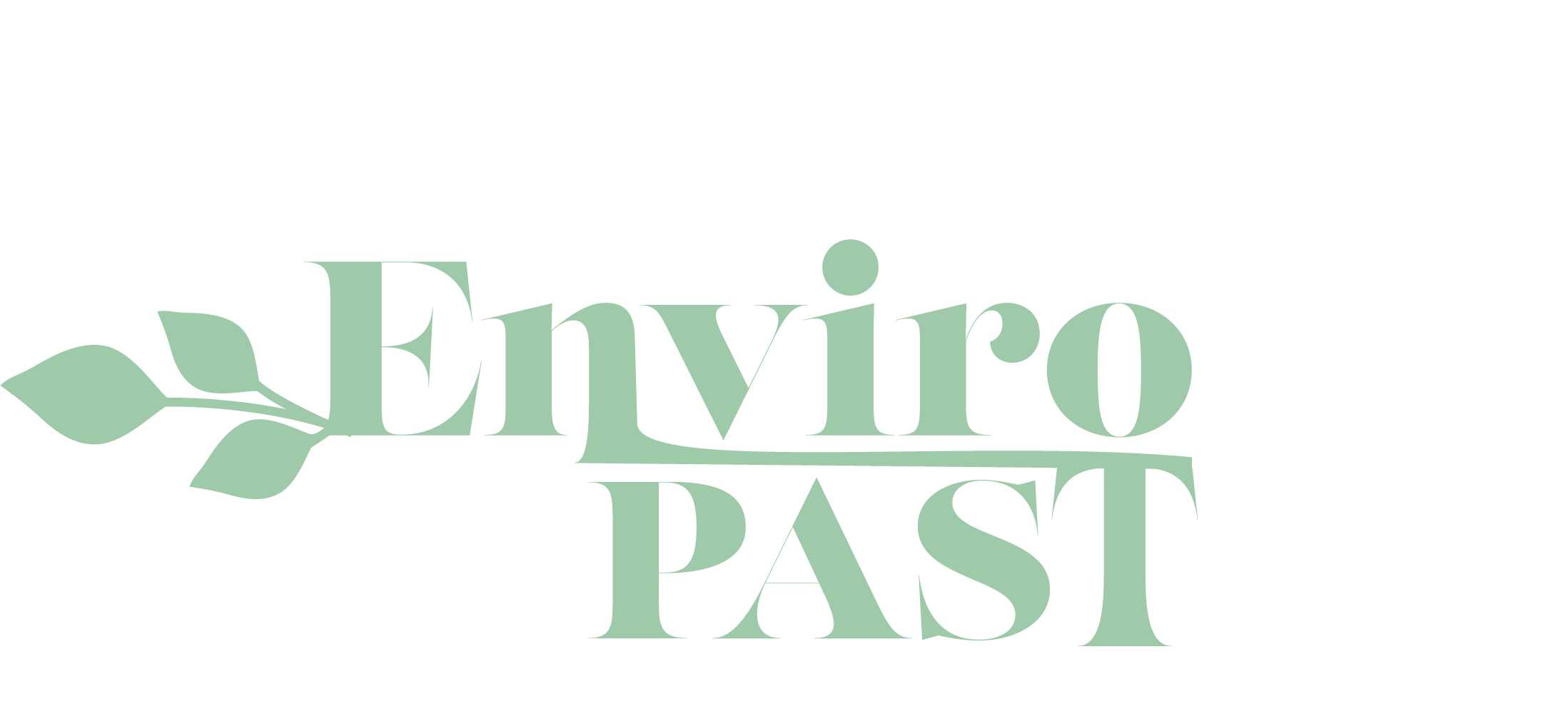The 2023 Wellington forum, themed “Environmental Wellbeing”, explored a wide range of topics, from environmental psychology and activism burnout to design thinking for sustainability. Participants also had the chance to make a real difference by helping Forest and Bird with their work at Chartwell Bush and feeding into Wellington City Council’s research on climate anxiety.
SPEAKERS

HOLLY NORTON (MC)
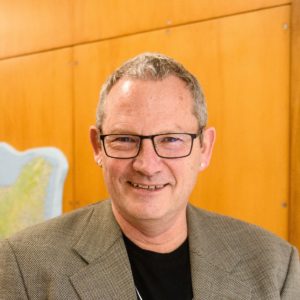
JAMES RENWICK
James is a climate researcher who studies Southern Hemisphere climate variability, and the impacts of climate change on the Pacific, New Zealand and the Antarctic. He has been a lead author for the Intergovernmental Panel on Climate Change (IPCC) for the last 20 years, contributing to three Assessment Reports. James was awarded the Prime Minister’s 2018 prize for Science Communication and was part of the team that won the Prime Minister’s Science Prize in 2019. He was appointed to the New Zealand Climate Change Commission in 2019.

WoKJe Abrahams
Wojke is an environmental psychologist, whose research focuses on the human dimensions of environmental change. She applies psychological theories to better understand the barriers and enablers of engagement in environmentally friendly behaviours, such as attitudes, social norms, and habits. Wojke also examine the effectiveness of interventions (for example information campaigns, commitment making, feedback provision) to encourage the adoption of environmentally friendly behaviours, such as energy conservation and travel mode choice.

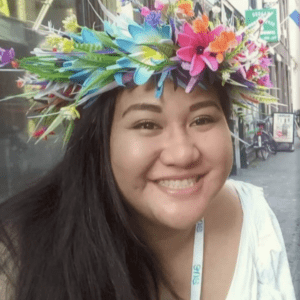
Mary Moeono-Kolio & Bethany Mataiti
Mary is part of the global community fighting for climate justice, and has represented Aotearoa and the Pacific at various international summits including United Nations Climate Summits and One Young World. In 2018, Mary founded the Wellington chapter of the Pacific Climate Warriors alongside her brother which is a dynamic network of youth-led, grassroots Climate Activists From across the Pacific, advocating and working with and for communities on the frontlines of climate change. Mary won The Impact Award for Climate in 2021, which recognised her advocacy and leadership fighting for climate justice and currently sits on the board of the New Zealand Climate Action Network and is a Fossil Fuel Non-Proliferation Treaty Pacific champion.
Bethany Mataiti is a coordinator of the Pacific Climate Warriors, Te Whanganui-a-Tara team. She is a proud New Zealand-born Cook Islander with connections to Aitutaki. Bethany is a mother, a graduate of Victoria University and works in the public sector. She joined the Pacific Climate Warriors to fight for climate justice for her friends and family in the Cook Islands who are experiencing the direct impacts of climate change.
PANEL SESSION: THE ENVIRONMENT AND YOUR CAREER
Have you wondered how you can incorporate your passion for the planet into your adult life and career? In this panel, you’ll hear from academics, entrepeuners and politicians who have incorporated sustainability into their chosen fields. Whether this be through an environment-centric career, or by volunteering outside of work, you’ll be shown a range of ways to keep your passion alive.

Francine Corhumel
Francine Corhumel was born in Madagascar. She loves to dance, walk and lives sustainably!
After earning a degree in Grenoble, France, Francine travelled the world – met her partner in New Zealand. She has since grown three children, spending time in France and New Zealand.
Francine was the store manager for the first New Zealand Body Shop, the pioneering business in sustainable and ethical retail. She has since worked as retail area manager in France and New Zealand where she trained managers and implemented more sustainable systems.
Currently Francine is the shop manager for Hopper-Refill, “Wellington’s Best Kept secret” offering food without packaging – sourcing local food and other goods from local businesses. Francine also helps to develop Hopper Home on the larger scale – to become a whole building and outside space/garden in Wellington to offer sustainable, creative and healthy living in an urban environment.
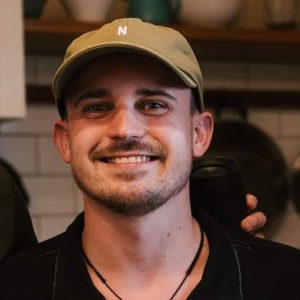
Benji Pritchard
Born in Manawatū and now based in Wellington, Benji is a serial entrepreneur and innovation specialist with a passion for education and sustainability. His involvement with the Māngere Refugee Resettlement Centre and the stark reality of Aotearoa’s child poverty led him to establish the EIARNAP (Education Is A Right Not A Privilege) Charitable Trust.
The trust runs stationery banks, which are similar to a food bank, but they instead provide both new and secondhand stationery items to children in the lower North Island, including all resettled former refugees. This initiative supports children’s creativity and learning at home by supplying essentials ranging from pens and pencils to desks and chairs.
In the past six years, Benji has also founded two startups in the tech and digital education sectors. Currently, he is an Innovation Specialist at Creative HQ, working alongside a diverse array of government bodies, corporates, and startups to address a multitude of challenges, often in the environmental domain. His work exemplifies the intersection of career, passion for the environment, and drive for societal impact.

Lauren Craig
Lauren Craig (she/they) is a transgender environmental legal activist and co-founder of Students for Climate Solutions. She studied Law at Te Herenga Waka – Victoria University of Wellington, and used these skills to launch a legal case against the New Zealand government to prevent on-shore oil exploration in the Taranaki region, as well as travel to The Hague, Netherlands to file a case against BP’s senior executives for their role in actively covering up climate change. She has also worked in the political space as a staffer for Tory Whanau’s successful Wellington mayoral campaign in 2021.

DR MIKE JOY
Dr Mike Joy is a senior researcher at the Institute for Governance and Policy Studies at Victoria University, Wellington. He researches ecological modelling, bioassessment, environmental science, environmental policy, and energy futures.
Mike is an outspoken advocate for environmental protection in New Zealand and has received several awards including an Ecology in Action award from the NZ ecological Society, the 2013 Charles Fleming Award for environmental work from the Royal Society of New Zealand, the 2015 inaugural Morgan Foundation River Voice Award and in 2017 the inaugural NZ Universities Critic and Conscience award.
WORKSHOPS


Activism Burnout with Generation Zero

Design Thinking for Sustainability with Lyn Garrett
This workshop explored how we can solve complex issues through a human-centred approach, whether through simple mindset shifts or looking by at them in new ways. Key skills include empathy, ideation, and experimentation.
Lyn (Te Atiawa) has been teaching Industrial Design at Massey University since 2001 and has been steering the Industrial Design component of the Bachelor of Design program since 2006. On top of 30 years of academic experience, Lyn has extensive professional product design experience in New Zealand and the UK specialising in high-performance office furniture, workplaces, and electronic products. His professional awards include the Prince Philip Award for Industrial Design as designer of the Zaf chair range for leading New Zealand manufacturer Formway.
This breadth of experience enables Lyn to stitch together industrial design profession, practise, and education, and allows him to indulge in exploring not just how industrial design works but why it’s important. Lyn has a deep interest in sustainability and forecasting and equally firm views on how industrial design should contribute to society and culture.
Additionally, he’s an accomplished storyteller, and has a side interest in production design for science fiction movies and the relationship between design, science fiction, and culture. He’s a life member of the Human Factors and Ergonomics Society of New Zealand, and has also led a motorcycle training school and coordinated ante-natal classes.
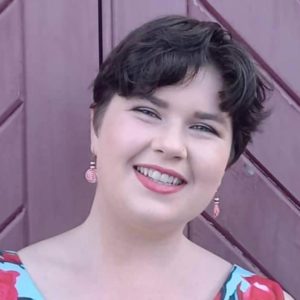
SUSTAINABLE KAI with Fiona Williams
One way we can care for the environment is through the food we eat. This workshop taught attendees how to reduce food waste, with simple recipes that anyone can make, and educated them about how this will impact climate change.
Ko Fiona tōku ingoa. I am an associate registered nutritionist. I am passionate about all things kai. I believe food is a powerful tool we have to benefit our hauora wellbeing. I aim to support healthy people, resilient local food systems, kai security and kai sovereignty. This has led me to build my understanding of how these are all vulnerable to the effects of climate change. I am also an advocate for the many opportunities we have to care for our environment through the food we eat.

Impact of News Media with Maia Ingoe
Journalism is important in spreading ideas and as a mode of mass communication. This workshop explored environmental journalism, what goes into writing it, and how this affects people’s perceptions of climate change issues and events.
Maia is a writer and journalist based in Te Whanganui A Tara, hailing from Tairāwhiti, and a co-editor of Salient Magazine this year. She finished studying environmental and development studies at Te Herenga Waka – Victoria University of Wellington last year. She hopes to bring her passion for the environment and for storytelling together, to provide effective and powerful communication about the climate crisis. Her work has been published in Living with the Climate Crisis (2020; edited by Tom Doig), Stuff, The Spinoff, Headland Journal, and Salient.

Chartwell Bush
with Forest and Bird
Every year, the practical action event is the highlight of the forum for attendees. Attendees visited Chartwell Bush and experienced a Wellington Forest & Bird project in the raw. A gateway to the Outer Green Belt and skyline walkway hidden from view in Crofton Downs and adjoining Wellington’s only native plant botanic garden in Otari-Wilton’s Bush. The project was established to clear exotic and invasive pest plants, abandoned cars, and household rubbish from a neglected reserve with an artificial bog created during the construction of the Wilton sub-station and transform it into one that resembles a natural forest and wetland.
Volunteers chose from a range of options over the visit that included weed and/ or rubbish clearance and planting.
The Wellington Branch of Forest & Bird has a membership base of over 1,000 with the vision of restoring green corridors to support wildlife on the land and in the waters and sea of te Whanganui-a-Tara. The Wellington Branch has a proud history of achieving important conservation outcomes in Wellington, and looks forward to welcoming EnviroPAST attendees.
Climate Cafe
with Wellington City Council
So much of the time, it can feel as though we are having the same conversations about climate change. Often, those conversations are fuelled by understandable anxiety and fear, especially when we want to see action but feel hopeless on our own in the face of the complexity. In this workshop, we explored how communities and the Council can work together to create collective, empowered action that builds compassion, connection and hope. None of us can do this alone, and this workshop aimed to connect, spark ideas and shape future conversations and action between the Council and communities.

